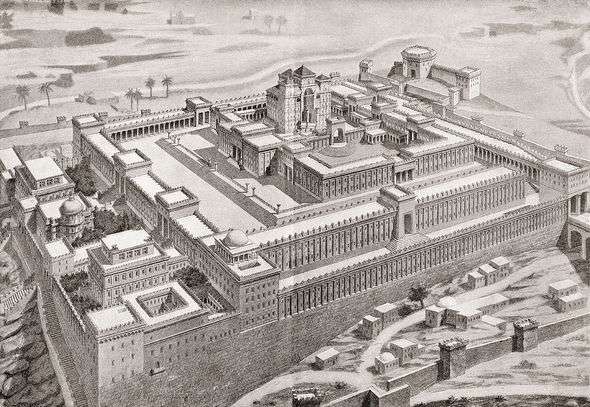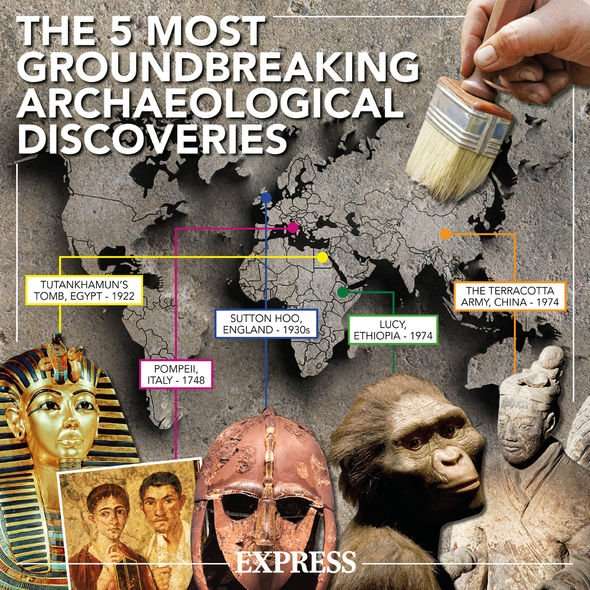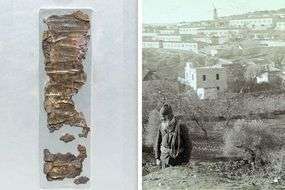ARCHAEOLOGICAL discoveries paired with modern-day medical knowledge can confirm the bible’s historical accuracy, a biblical scholar has claimed.
The Bible is celebrated by billions of people as a spiritual document but there are some who believe it is just as important in terms of its historical track record. Professor Tom Meyer, an expert in Middle Eastern languages from Shasta Bible College and Graduate School in California, US, is certain archaeological studies can validate the Bible every step of the way. In particular, the expert told Express.co.uk there is reason to believe modern techniques and archaeology can be used to explain one of the Bible’s more unusual stories – the madness of Nebuchadnezzar, king of Babylon.
Trending
Professor Meyer said: “The observation of a unique medical condition and the discovery of a related archaeological object could help explain one of the most bizarre accounts in the Bible, the cruel and unusual divine punishment of the famous sixth century BC king of Babylon, Nebuchadnezzar.
“According to the Bible, after the destruction of Jerusalem in 586 BC and at the zenith of Nebuchadnezzar’s power, when his heart was lifted up with pride, the God of Israel took away his royal authority for seven years by driving him from human society.
“The most famous and powerful king in the world was condemned to spend seven years in the fields with the wild animals and to eat grass like a cow until he learned that the God of Israel has power over human kingdoms and that he can give them to anyone he chooses.”
By modern-day standards, the king’s bizarre behaviour could be explained through a condition known as boanthropy.


READ MORE
-

End of the world: Preacher prophesies the return of Jesus Christ
Bonathropy is described as a personality disorder in which a person believes they are a cow or an ox.
According to the Pharmaceutical Journal, Nebuchadnezzar is the most famous sufferer of this condition, as described in the Book of Daniel.
It is even possible a person suffering from Boanthropy could try eating grass.
Professor Meyer said: “In 1946 Dr Raymond Harrison of England recorded his experiences of observing a modern-day case of boanthropy.
“Dr Harrison observed that the patient’s only physical abnormality was the lengthening of his hair and a thickened condition of the nails, the same anomalies that beset Nebuchadnezzar.
“Also, like the famous king, the observed patient spent the entire day roaming the asylum grounds from dusk till dawn eating handfuls of grass and drinking out of puddles like an animal.
“According to the Bible, at the end of seven years Nebuchadnezzar’s faculties were fully restored and he praised the God of Israel.”
There are other theories that could explain the Babylonian king’s behaviour.
Nebuchadnezzar could have been afflicted by porphyria – a group of enzyme disorders that are triggered by the buildup of the chemical porphyrin in the body.
DON’T MISS…
How an ancient Egyptian artefact could prove the Bible right [INSIGHT]
Bible verses about coronavirus: What does Bible say about COVID-19? [INSIGHT]
What the Bible said must happen before the end of the world [INTERVIEW]


READ MORE
-

Archaeology: How the oldest Bible texts were found by pure chance
The condition has been linked to hallucinations, depression and paranoia.
Nebuchadnezzar ruled the Babylonian empire between 605 BC and 562 BC and was responsible for the conquest of Judah.
His exploits are described in the Bible’s Book of Daniel, Book of Kings, Book of Chronicles and Book of Jeremiah.
Professor Meyer is also certain the account of King Nebuchadnezzar’s illness can be validated through archaeological discoveries.
He said: “There may also be an archaeological clue that alludes to this time period of Nebuchadnezzar’s madness; archaeologists haven’t yet discovered any royal decrees by Nebuchadnezzar and the Babylonian army apparently didn’t partake in any military campaigns during this time, presumably because of the madness of their king.
“As for the archaeological object linked to this narrative, Assyriologist A.K. Grayson published a sixth century BC cuneiform tablet found in Babylon and now on display at the British Museum – object number 34113 – that states Nebuchadnezzar’s life appeared of no value and that he continually gave contradictory orders, could not recognize his own family members, or contribute in any of his building projects.
“This period of madness likely took place during the seven years he was driven from human society.
“Through the data uncovered by medical and archaeological research, we are able to measure the Bible’s historical accuracy.
“In every instance where the Bible’s claims can be tested, even in such bizarre accounts as the humbling of the famous Nebuchadnezzar, the Bible proves to be accurate and reliable.”
Sourse: www.express.co.uk





